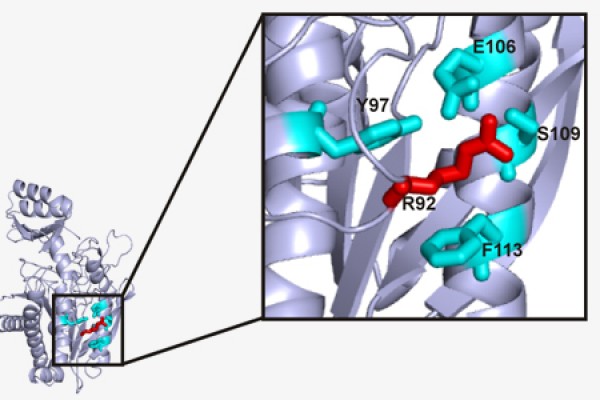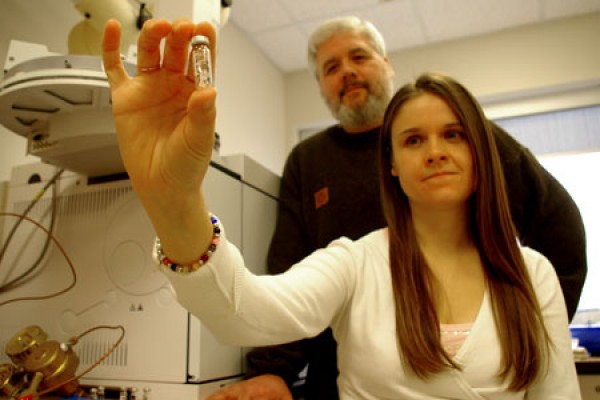A master’s student in biochemistry will get the chance to share what she knows about halting the progress of Parkinson’s disease with a large group of neurologists, pharmaceutical reps and fellow academics when she speaks at a national conference in British Columbia this week.
Chemistry & Biochemistry
A UWindsor biochemist will talk about his work on finding ways to halt the progression of Parkinson’s disease when the Parkinson’s Society of Southwestern Ontario holds its regional conference here for the first time ever.
If you prick us, we will bleed. The vast majority of us will then stop bleeding, thanks to a blood clot formed by an intricately balanced system of proteins, cells of the blood vessel wall, and cell fragments called platelets.
The next time you’re driving down a gravel road, John Roung wants you to think about the amount of dust that’s flying around.
If there’s not that much of it, there’s a good chance the road may have been sprayed with a new dust control product that was developed for his company in collaboration with a UWindsor chemist.
A trio of fourth-year students who recently brought home some impressive awards from the Southern Ontario Undergraduate Student Chemistry Conference say they couldn’t have done it if they didn’t work in such a supportive department.
Siyaram Pandey was skeptical when he was first approached by a local oncologist who was curious about cancer patients who had been drinking dandelion tea and seemed to be getting better.
Every morning when they go to work in their Essex Hall biochemistry lab, PhD students Pam Ovadje and Dennis Ma get an inspirational reminder of why they’re there. Mounted on the door to that lab is a plaque dedicating the space to the memory of Kevin Couvillon, who died at the age of 26 in November 2010, after a three-year battle with acute myeloid leukemia.
Professor Praveen K. Saxena will deliver a presentation entitled “Introducing Novel Natural Health Products into the Canadian Market: An integrated system for developing safe and effective plant based medicines,” on March 5 at Leamington’s Roma Club.
The presentation is sponsored by the University of Windsor’s Vice-President, Research, in collaboration with the Windsor Essex Economic Development Commission and is of especial interest to researchers and enterprises involved in the agri-food and natural product industries.
Stephen Loeb is clearly reticent about tooting his own horn, but as far as friends and colleagues are concerned, it’s high time the chemistry professor was recognized for a career of consistently producing cutting edge research and cranking out top quality graduate students from his lab.
In her highly controversial 1962 bestseller Silent Spring, author Rachel Carson argued that the uncontrolled and widespread use of such pesticides as DDT was killing a wide variety of birds that were facing the possibility of extinction if something wasn’t done to address the problem.






